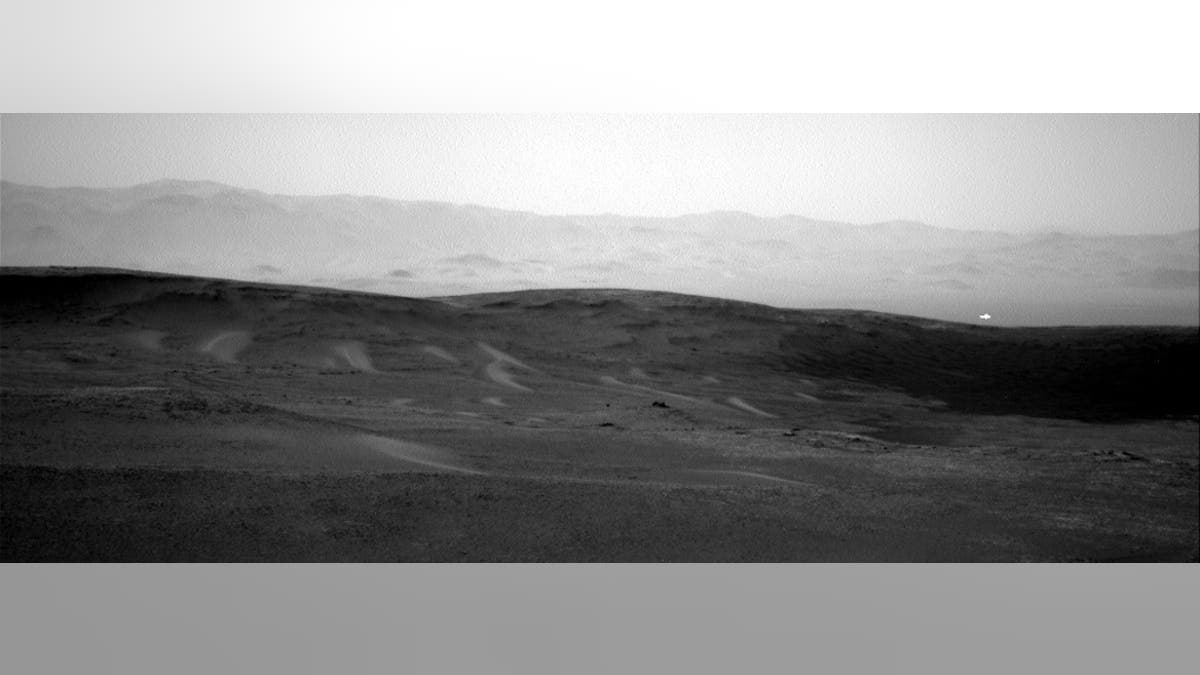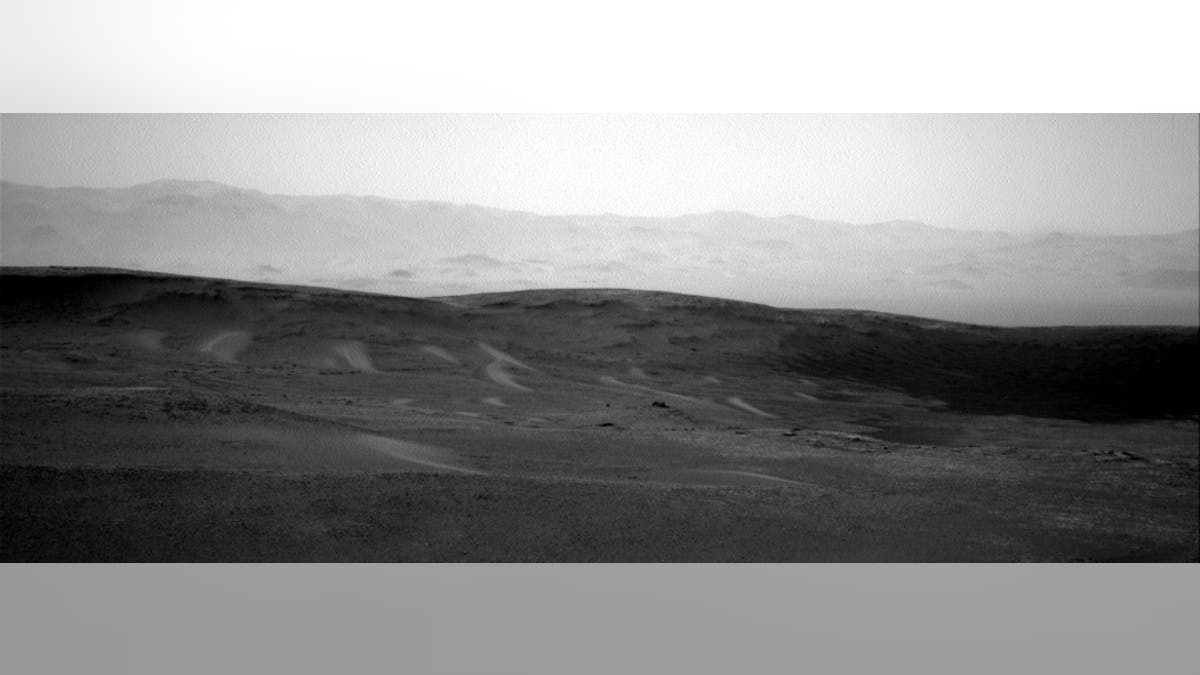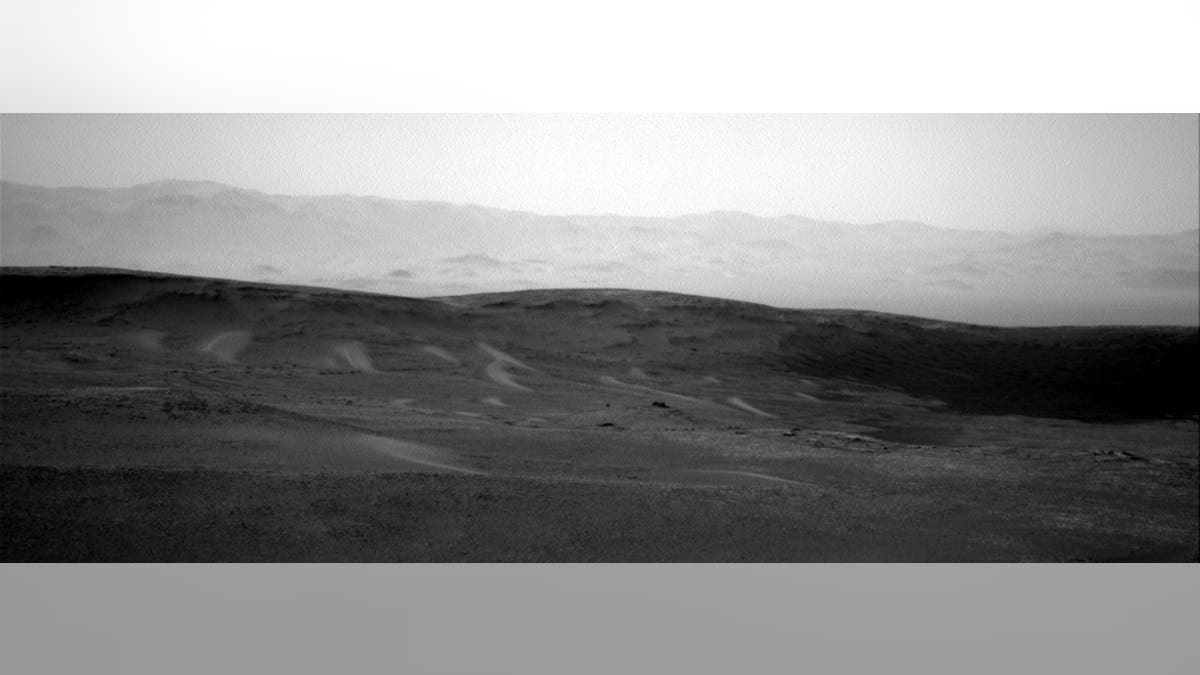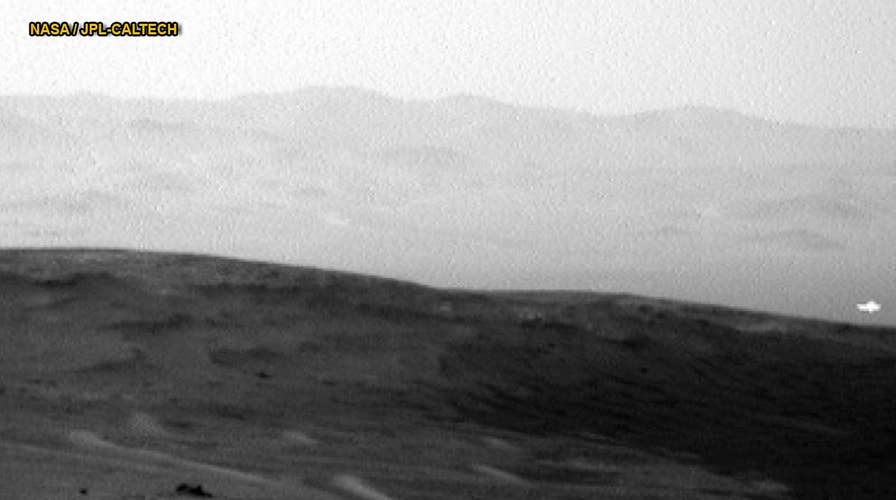Mysterious white light on Mars seen in NASA photo
NASA has released a photo taken by its Curiosity rover that shows a mysterious, unexplained white light on Mars.
NASA has released a photo taken by its Curiosity rover that shows a mysterious, unexplained white light on Mars.
The black-and-white raw image was taken by the rover's right "navcam" (which acts as sort of an eye) on June 16, 2019 or Sol 2438, and transmitted back to Earth. The navcam snapped the picture at 03:53:59 UTC.
The rover has two navcams and 17 cameras and it has been sending photographs continuously since it landed on the Red Planet in August 2012, nearly seven years ago.

(Credit: NASA/JPL-Caltech)
NASA PICKS LANDING SPOT FOR MARS 2020 ROVER IN HUNT FOR ALIEN LIFE
It's unclear exactly what the white spot on the photograph is, as images taken almost immediately before and after do not show the mysterious white light. The images below, also released publicly, were taken at 03:53:46 UTC and 03:54:12 UTC.

This image was snapped by Curiosity at 3:53:46 UTC. (Credit: NASA/JPL-Caltech)

This image was snapped by Curiosity at 03:54:12 UTC. (Credit: NASA/JPL-Caltech)
This is not the first time an anomaly of this sort has been spotted by Curiosity on Mars. In 2014, a separate mysterious white spot was seen by the rover on April 3, or Sol 589. At the time, JPL scientist Dr. Justin Maki said he believed the light could be a glint from the "rock surface reflecting the Sun."
In December 2018, Curiosity detected a "shiny" object which may be a meteorite, but NASA researchers were not sure at the time. "The planning team thinks it might be a meteorite because it is so shiny," NASA wrote in a November 2018 mission update. "But looks can deceive, and proof will only come from the chemistry."
A NASA spokesperson told Fox News the anomaly is "likely an effect of the Sun" and "images with effects like this" are seen "pretty routinely."
CLICK HERE TO GET THE FOX NEWS APP
This story has been updated to include NASA's comment.




















